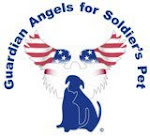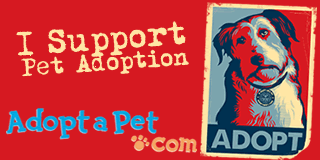Human Meds Top ASPCA’s List of Harmful Pet Toxins for 3rd Straight Year
ASPCA Animal Poison Control Center Fielded More than 167,000 Calls in 2010
January 28, 2011
NEW YORK—Human medications have topped the list of pet toxins for the third year in a row, according to a new list released today by the ASPCA® (The American Society for the Prevention of Cruelty to Animals®). In 2010, the ASPCA’s Animal Poison Control Center (APCC) in Urbana, Ill. fielded more than 167,000 phone calls about pets exposed to possibly poisonous substances – and in almost 25 percent of those calls the ASPCA aided in diagnosing and treating pets who accidentally ingested human medications.
According to the ASPCA, the top five calls into the APCC in 2010 were:For a complete list of the top 10 pet toxins of 2010, visit www.aspca.org/apcc. If your pet has ingested something toxic, please contact your veterinarian or the ASPCA’s 24-hour APCC hotline at 1-888-426-4435.
1) Human Medications. The most common culprits include over the counter medications like ibuprofen and acetaminophen, antidepressants, and ADHD medications. Pets often accidentally ingest the medication when pills are dropped on the floor.
2) Insecticides. About 20 percent of the calls are about insecticides, which are commonly used on pets for flea control or around the house to control crawling and flying bugs. The most serious poisonings occurred when products not labeled for use in cats were applied to them, so the ASPCA recommends pet owners always follow label directions.
3) Rodenticides. Baits used to kill mice and rats are mostly grain-based, which not only attracts the rodents but dogs and cats as well. Several different types of rodenticides can cause seizures, internal bleeding, or kidney failure. The ASPCA recommends keeping these products out of the reach of pets.
4) People Food. Xylitol, grapes, raisins, onions and garlic are foods commonly ingested by pets. Grapes and raisins can cause kidney failure in dogs, while onions and garlic can cause anemia if enough is ingested. Xylitol, an artificial sweetener used in many sugar-free gums and mints, can cause low blood sugar and liver failure in dogs.
5) Veterinary Medications. Many medications intended for our pets – which are often flavored to make it easier to administer them – can be so tasty that pets may ingest the entire bottle if they get hold of it. Common chewable medications include arthritis and incontinence medications. Always contact your veterinarian or the APCC if your pet ingests more than its proper dose of medication.
Share














